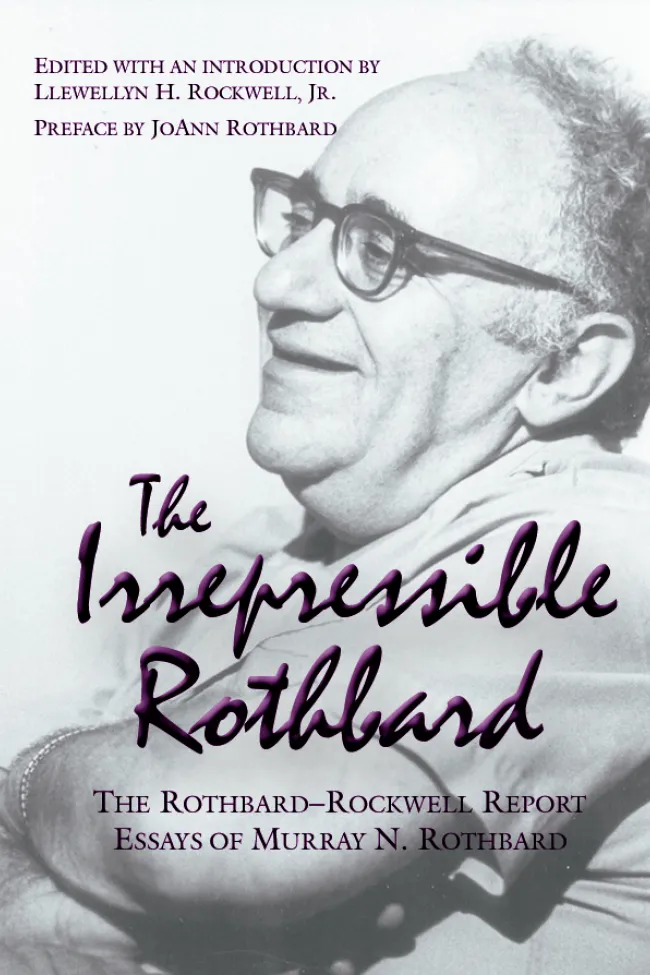Summing up the work of libertarian economist and historian Murray N. Rothbard (1926–1995) and noting its stunning range, philosopher David Gordon once wondered “if there are really three, four, or five geniuses writing under his name.” The lively essays collected in The Irrepressible Rothbard display one of those geniuses: Rothbard the journalist, cultural critic, political observer, and movement organizer. Even more remarkable, they represent just a fraction of what he wrote in his spare time, for just one publication, and in just the last few years of his life.
His articles combined libertarian antigovernment economics, decentralist local patriotism, antiwar isolation, and a dissident/reactionary cultural outlook that saw the growth of government as the key to the loss of the Old Republic. He defended land-rights groups against environmentalists, citizen militias against gun grabbers, isolationists against imperialists, paleoconservatives against neoconservatives, populists against party regulars, anti–New World Order conspiracy theorists against the establishment, nationalists against internationalist planners, states’ righters against libertarian centralists, the Christian Right against its own leadership, and much more.
These essays show not only Rothbard’s intellectual vigor but the complete joy with which he embraced life, and how his extreme optimism made even the most severe setbacks tolerable. He experienced great disappointments and great successes, but through it all he was heroic, undaunted, and irrepressible.
This volume displays Murray Rothbard’s late political writing as an intellectual model for those who long for liberty, and work for it in our times. This volume’s eighty-five essays address political strategy, war, nationalism, culture, feminism, and much more.

No content found

Murray N. Rothbard made major contributions to economics, history, political philosophy, and legal theory. He combined Austrian economics with a fervent commitment to individual liberty.
The Bill of Rights transformed the Constitution from one of supreme and total national power to a partially mixed polity where the liberal anti-nationalists at least had a fighting chance.
The Bill of Rights transformed the Constitution from one of supreme and total national power to a partially mixed polity where the liberal anti-nationalists at least had a fighting chance.
Murray Rothbard recounts how during the French and Indian War (1754–63), Americans continued the great tradition of trading with the enemy.
Center for Libertarian Studies, Burlingame, California, 2000

